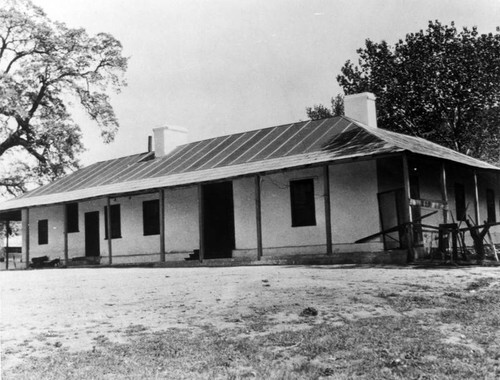Title
Rancho La Liebre, Near Fairmont
Creator
Description
Rancho La Liebre was a 48,800-acre rancho granted to Jose´ Mari´a Flores on April 21, 1846 by then-Governor Pi´o Pico. Flores was the commander and chief of the Mexican forces in California during the Mexican-American War. The ranch was so named because of the abundance of jackrabbits in the area ("liebre" means rabbit), and was mostly comprised of mountainous terrain. In 1855, Edward Beale purchased Rancho La Liebre from Flores for a mere three cents an acre. It was the first of the four Mexican Land Grants that Beale would acquire to create the present Tejon Ranch. It was on this property that Beale built an adobe home for his wife, which he named La Casa del Rancho La Liebre or Rancho La Liebre Adobe. The sturdy and roomy adobe served as the administrative headquarters for the nearly 270,000 acres of ranch land that expanded over both Los Angeles and Kern Counties. Beale, along with Robert S. Baker (one of the future founders of Santa Monica), ran sheep on the property with their flocks growing to over 100,000 head. The rancho is now a part of the Tejon Ranch.
Title supplied by cataloger.
View of a single story adobe showing a wrap-around porch, several thin posts holding up the roof, and two chimneys peeking out from it. It is unknown if this is Rancho La Liebre Adobe, built by Edward Beale in Bear Canyon; or if it is La Casa de Miguel Orti´z, located at 13980 Elizabeth Lake Road, situated on land given to him by Beale, which was part of Rancho La Liebre.
Subject
Type
image
Format
Contributor
Access Rights
Image is displayed for education and personal research only. For individual rights information about an item, please check the “Description” field, or follow the link to the digital object on the content provider’s website for more information. Reuse of copyright protected images requires signed permission from the copyright holder. If you are the copyright holder of this item and its use online constitutes an infringement of your copyright, please contact us by email at rhizomes@umn.edu to discuss its removal from the portal.
